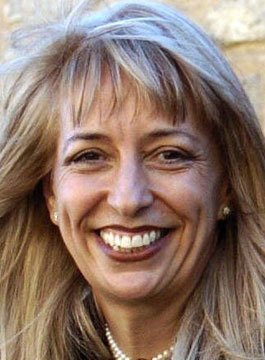Baroness Susan Greenfield is a Neuroscientist, Broadcaster, Author and Keynote Speaker.
Susan Greenfield was an undergraduate at St Hilda’s College Oxford and took a DPhil in the University Department of Pharmacology, Oxford. She subsequently held research fellowships in the Department of Physiology, Oxford, the College de France, Paris, and NYU Medical Center, New York.
From 1998 to 2010 she served as Director of the Royal Institution of Great Britain, a post held jointly with her chair in Oxford. Susan is now CEO of a biotech company which she founded in 2013 to develop a disruptive approach to Alzheimer’s disease based on her research exploring novel brain mechanisms linked to neurodegeneration.
Greenfield has been awarded 32 Honorary Degrees from British and foreign universities. In 2000, Susan was elected to an Honorary Fellowship of the Royal College of Physicians.
Further international recognition of her work has included:
- The ‘Golden Plate Award’ (2003) from the Academy of Achievement, Washington
- The L’Ordre National de la Légion d’Honneur (2003), from the French Government
- The 2010 Australian Medical Research Society Medal
She was awarded a CBE in the Millennium New Year’s Honours List and was granted a non-political Life Peerage in 2001.
In 2004 and 2005, she was ‘Thinker in Residence’ in Adelaide, reporting to the Premier of South Australia on applications of science for wealth creation.
She served as Chancellor of Heriot Watt University 2005- 2012, and in 2007 was elected into the Fellowship of the Royal Society of Edinburgh. From 2014 – 2016 she held an annual Visiting Professor at the Medical School, University of Melbourne.
Best-Selling Author
As a best-selling author, Susan Greenfield’s books include:
- Journey to the Centres of the Mind (1995)
- The Private Life of the Brain (2000).
- The Human Brain: A Guided Tour (1997)
- Tomorrow’s People: How 21st Century technology is changing the way we think and feel (2003)
- ID: The Quest for Identity in the 21st Century (2009)
- 2121: A Tale from the Next Century (2013)
- Mind Change: How 21st Century Technology is leaving its mark on the brain (2014)
- A Day in the Life of the Brain: Consciousness from Dawn ‘til Dusk (2016)
As a result of her original background in classics, Greenfield held the Presidency of the Classical Association for 2003 – 2004 and in 2010 was elected to a Fellowship of the Science Museum.
From 2000 she was a Forum Fellow at the World Economic Conference at Davos for ten years.
In 2002 she authored the Greenfield Report SET Fair: A Report on the Retention and Recruitment of Women in Science, Engineering, and Technology.
Greenfield has been profiled in a wide range of papers and magazines, voted ‘one of the 100 most influential women in Britain‘ by the Daily Mail in 2003, and ‘Woman of the Year’ by the Observer in 2000.
n 2014 she was included in Debretts ‘Top 500 of the most influential people in Britain today‘.
Susan Greenfield Keynote Speaker
Understanding the human mind and how it is evolving, bears relevance to audiences right across the public and private sector – from solving workforce issues, nurturing leadership and inspiring creativity, to understanding the consumers of the future.
Susan Greenfield delivers captivating keynote speeches for organisations across a wide variety of sectors including science, finance, technology, media and education.
Speech topics include:
- Women in Science, Engineering and Technology
- Genetics, Science and Risks
- Science and the Economy
- The Future of Science
- The Private Life of the Brain
- The Future of the Mind
- Consciousness
- The Neuroscience of Creativity
- Dementia: Current and Future prospects

